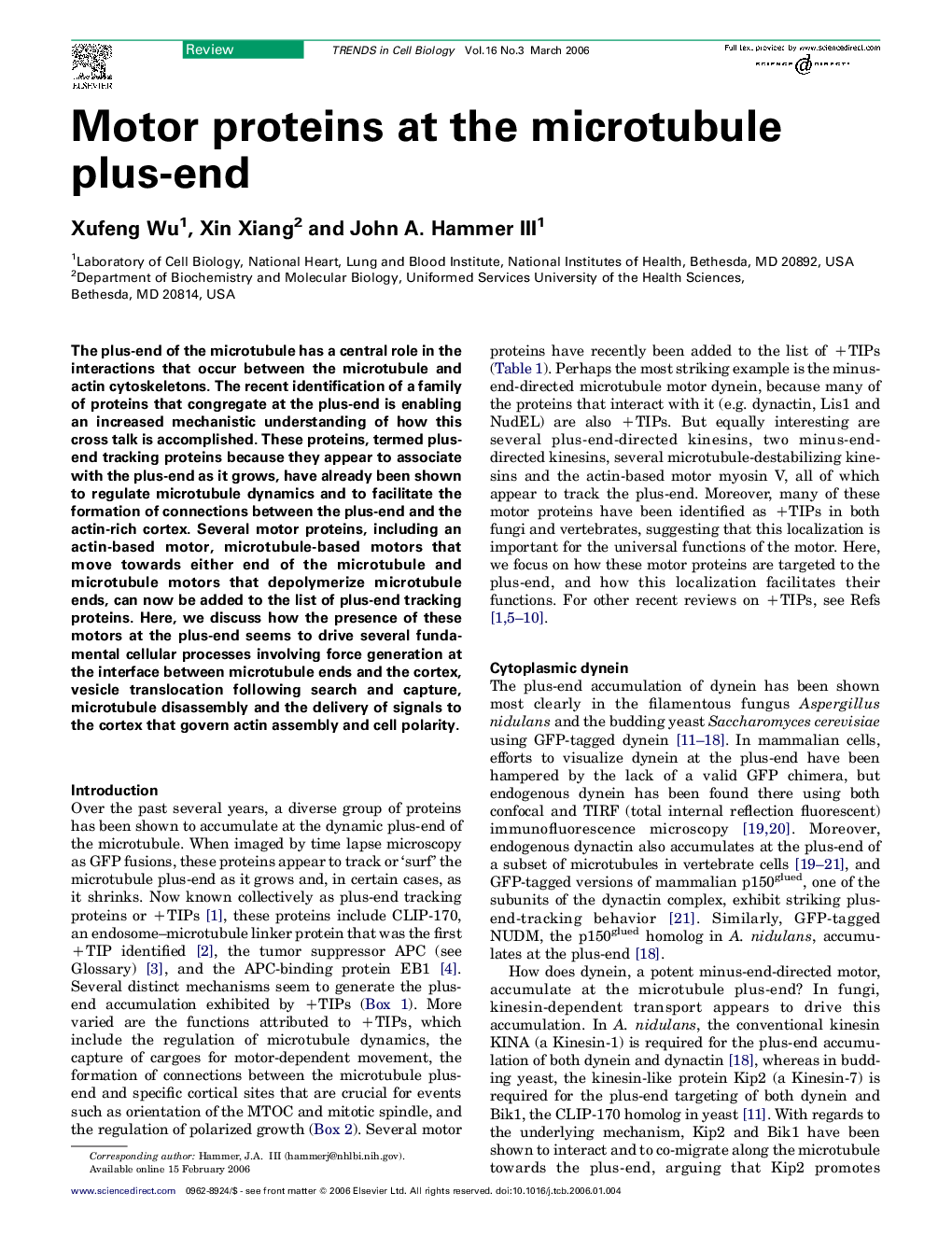| Article ID | Journal | Published Year | Pages | File Type |
|---|---|---|---|---|
| 2205368 | Trends in Cell Biology | 2006 | 9 Pages |
The plus-end of the microtubule has a central role in the interactions that occur between the microtubule and actin cytoskeletons. The recent identification of a family of proteins that congregate at the plus-end is enabling an increased mechanistic understanding of how this cross talk is accomplished. These proteins, termed plus-end tracking proteins because they appear to associate with the plus-end as it grows, have already been shown to regulate microtubule dynamics and to facilitate the formation of connections between the plus-end and the actin-rich cortex. Several motor proteins, including an actin-based motor, microtubule-based motors that move towards either end of the microtubule and microtubule motors that depolymerize microtubule ends, can now be added to the list of plus-end tracking proteins. Here, we discuss how the presence of these motors at the plus-end seems to drive several fundamental cellular processes involving force generation at the interface between microtubule ends and the cortex, vesicle translocation following search and capture, microtubule disassembly and the delivery of signals to the cortex that govern actin assembly and cell polarity.
